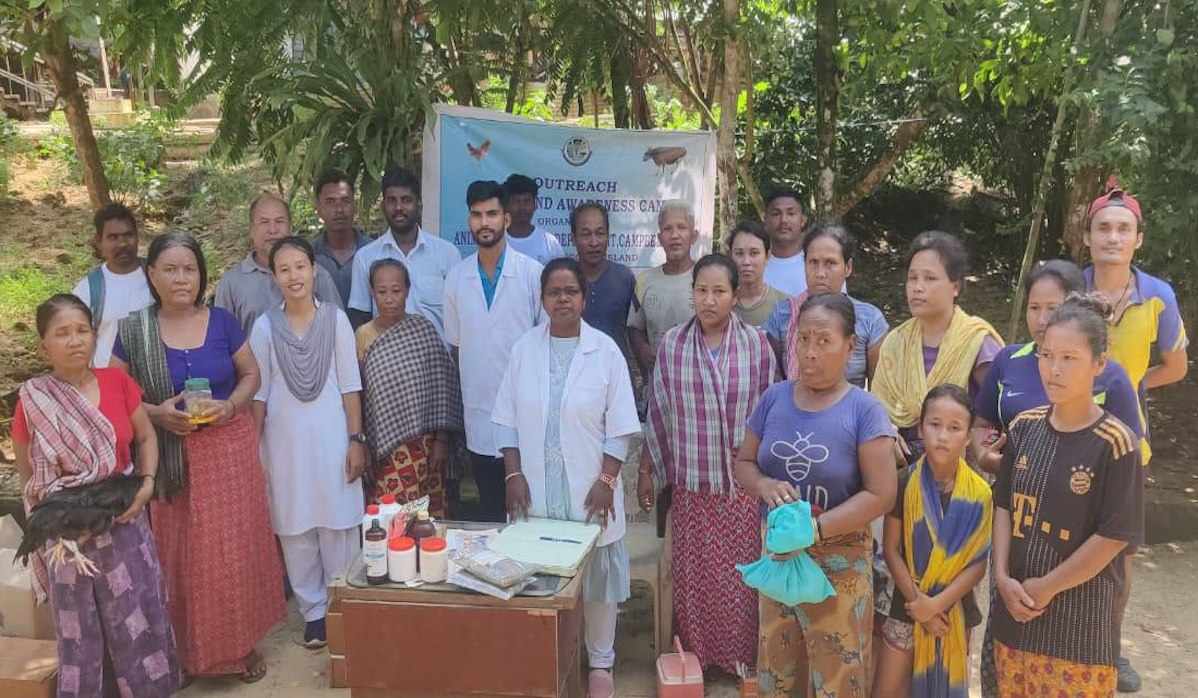Tarun Karthick
Campbell Bay, 20 November 2024
The Department of Animal Husbandry and Veterinary Services, Campbell Bay, reaffirmed its dedication to serving remote areas by organising an awareness-cum-health camp at Afra Bay, Great Nicobar, on Monday, 18th November 2024. This initiative aimed to enhance the livelihood and nutritional security of the tribal community residing in this isolated village.
Afra Bay is a tribal settlement located on the northern part of Great Nicobar Island. The settlement is inaccessible by road from Campbell Bay, with the only means of reaching it being speedboats and dinghies. Despite these logistical challenges, the department’s team made the journey to ensure essential services reached the community.
The camp was spearheaded by Dr. Sanjhali Soren, Senior Veterinary Officer, VH & CLF Campbell Bay, along with a dedicated team that included Mr. Y. Chandrasekhar, Veterinary Compounder, Miss Meridia, Veterinary Attendant, and other staff members. Their collective efforts, supported by the local administration and public representatives from the tribal community, ensured the program’s success and its impact on the intended beneficiaries.
During the event, essential farm outputs and medicines, including table eggs and backyard poultry livestock, were distributed to villagers. The team also demonstrated poultry and livestock vaccination techniques and introduced the farming of Azolla fern—a nutrient-rich feed supplement for animals. These efforts aimed to promote sustainable farming practices and improve the community’s overall quality of life.
Awareness sessions focused on poultry care, livestock management, and animal health further empowered the villagers, equipping them with the knowledge and tools necessary to enhance their agricultural and livestock practices.
This initiative highlights the department’s commitment to reaching the most remote corners of the island and addressing the unique needs of diverse communities. It stands as a testament to their mission of bridging service delivery gaps, fostering sustainable development, and uplifting the rural economy through targeted interventions.

